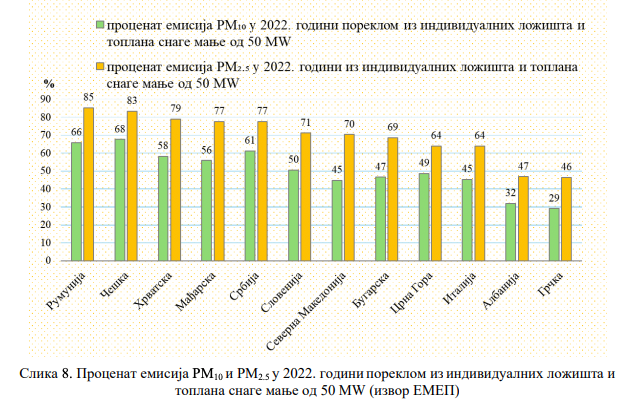Last week, the Environmental Protection Agency published the Annual Report on the State of Air Quality in the Republic of Serbia for 2023. The report provides an overview that indicates a certain improvement in air quality parameters in 2023 compared to 2022.
Thanks to the work of the Agency and numerous civil society organizations, we have a better understanding of air quality indicators, the state of air quality in the Republic of Serbia and the relationship between the state of air quality in the Republic of Serbia and the surrounding countries and the countries of the European Union. Thanks to the work of civil society organizations, we know better the importance of air quality for our health, unfortunately the institutions do not help us enough in this.
As compared to the time of our pioneering work, the number of organizations that can give their view of the situation has increased, we have decided to refer only to the part of the report in which the Agency compares different countries of its choice in terms of the percentage share of emissions of suspended particles originating from individual combustion plants and heating plants with less than 50 MW in total emissions.

Since in our opinion such a comparison is not of great importance for citizens, we have decided to offer you a presentation of the emissions of suspended particles per capita for the same countries and the same year. For this comparison, we used data from the same source as the Agency, and for population data, we took data from the World Bank for the year 2022.
We have also prepared for you data on sulfur dioxide emissions per capita.


Serbia leads in emissions of suspended particles per capita. In the Balkan race of sulfur dioxide emissions per capita, we lost to Montenegro, but by several orders of magnitude we beat other Europeans, even those with lignite power plants. As you probably know, sulfur dioxide emissions significantly affect the levels of particulate pollution we breathe.
Breathing in the Balkan air-pollution dodgeball continues.
Take a look to the emissions of particulate matter and sulfur dioxide in selected countries.
